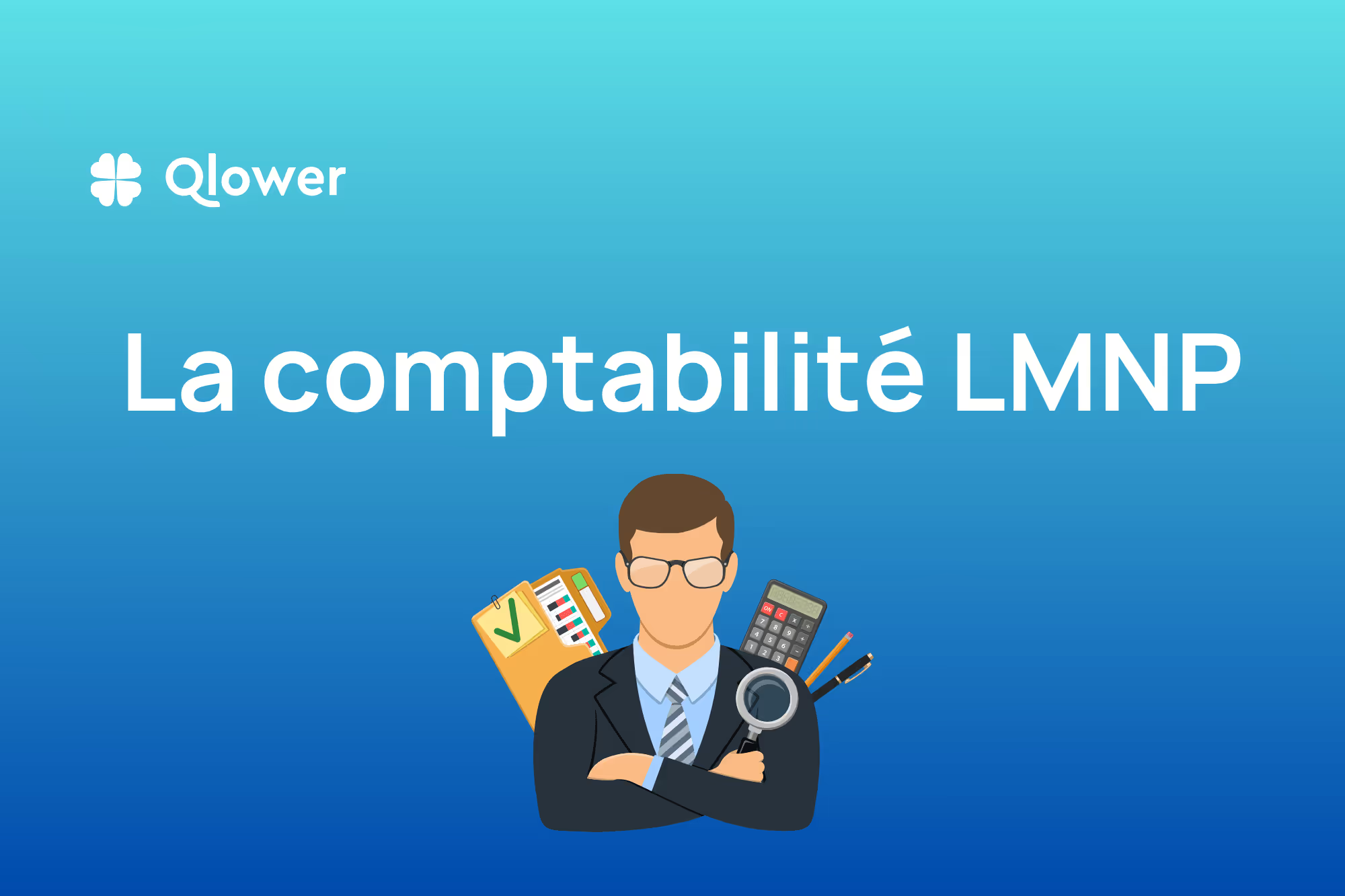LMNP on Airbnb: Strategies for Optimal Returns
Non-professional furnished rentals (LMNP) via Airbnb has become an increasingly popular real estate investment strategy in France. It offers owners the opportunity to generate significant income by renting their accommodation on several internationally recognized platforms such as Airbnb. This guide will provide you with key strategies for maximizing your rental return by exploiting the potential of Airbnb under the LMNP regime.
LMNP applied to Airbnb
The LMNP is a French tax status allowing owners to rent a furnished property while benefiting from an advantageous fiscal framework. When this formula is applied to rentals via Airbnb, it combines the flexibility and accessibility of the platform with the tax advantages of LMNP status, in particular in terms of depreciation of the property and deduction of expenses.
Why Airbnb? Airbnb has established itself as a platform of choice for vacation rentals, offering global visibility and facilitating the connection between owners and tenants. Thanks to its ease of use and its large audience, Airbnb allows LMNP owners to maximize the occupancy of their home and, therefore, their rental income.
To list your accommodation on Airbnb, you must respect certain conditions, especially concerning local regulations. Upstream, it is essential to register your activity with the INPI and to comply with the requirements of town halls, such as the assignment of a number ofmatriculation Town hall distinct from that of the INPI.
Why is Airbnb an attractive option for LMNP owners?
The attractiveness of Airbnb for LMNP owners lies in several key advantages:
- Visibility and accessibility: Airbnb offers a global platform that attracts millions of visitors every month. For LMNP owners, this means increased visibility of their furnished properties to an international audience, thus increasing the chances of reservations and reducing rental vacation periods.
- Flexible rentals: Thanks to Airbnb, owners can offer their property for short periods of time, which allows prices to be adjusted according to demand and seasons. This flexibility offers the opportunity to optimize rental income well beyond traditional or capped monthly rents.
- Simplified management: The platform offers integrated management tools, such as reservation calendars, communications with tenants, and secure payments, greatly simplifying the daily administration of rentals.Attractive tax regime: LMNP owners benefit from the favorable tax regime of the LMNP.
- Or with the lump-sum allowance ranging from 30% to 71% since 2024, resulting in taxation on 70% or 29% of income from Airbnb rentals. It's the Micro-Bic, interesting in a few specific cases.
- Or with the possibility of deducting actual expenses. In this case, all of housing expenses are deductible. It's the Real BIC, more interesting in the majority of cases.
- Enhanced rental experience: Airbnb focuses on the user experience for both hosts and travelers. Owners can thus value their property through detailed descriptions, quality photos, and collect positive reviews.
- Compliance and support: Airbnb supports owners in complying with local regulations, offering resources and advice to navigate the various legal frameworks.
Eligibility criteria for LMNP owners on Airbnb
For owners considering renting their property on Airbnb under LMNP status, understanding the eligibility criteria is necessary to ensure a legal and profitable business. Indeed, the LMNP status offers significant tax advantages, but it is subject to specific regulations that must be respected.
Airbnb-specific regulations and restrictions
To become a non-professional furnished renter (LMNP) on Airbnb, several eligibility criteria and regulations must be taken into account:
- Activity statement: it is necessary to declare the furnished rental activity to the INPI to obtain a SIRET number. This formality is part of the tax regulations applicable to LMNPs.
- Income limit: to maintain LMNP status, annual rental income must not exceed 23,000 euros or represent more than 50% of the total income of the fiscal household.
- Local regulations: owners must comply with local regulations specific to short-term rentals. This may include obtaining authorization to change use, especially in big cities like Paris, where regulations aim to limit the impact of vacation rentals on the residential real estate market. Each locality may have its own local legislation that must be checked before the rental project.
- Limitation of the rental period: Some municipalities impose an annual limit on the number of days (120 days in general) during which a home can be rented seasonally. This is the case for main residences in particular.
- Respecting Airbnb rules: Owners must also respect Airbnb's terms of use and quality criteria, including accurate listings, communicating with tenants, and managing reservations.
- Insurance: specific insurance may be required to cover the risks associated with short-term rentals, going beyond traditional home insurance.
Tax optimization for Airbnb rentals in LMNP
For owners who rent their property on Airbnb as an LMNP, the question offiscal optimization is essential. Indeed, benefiting from specific tax advantages can considerably influence the rental yield and the overall profitability of real estate investment.
LMNP tax benefits for Airbnb rentals
LMNP status offers significant tax benefits for owners renting through Airbnb. This regime allows, among other things, the amortization of real estate and furniture, which is unique to this tax status. To illustrate by simplifying, if a property is purchased for 220,000 euros and depreciation is calculated over 50 years, this means a deductible charge of 4,000 euros per year (10% land share deducted), reducing the taxable income generated by the rental.
Owners can also deduct real expenses related to the rental activity, such as condominium fees, management fees, loan interests, maintenance and repair expenses, real costs related to the operation of the property (advertising, Airbnb service fees, Airbnb service fees, specific insurance for vacation rentals, specific insurance for vacation rentals, cleaning expenses, purchase of linen and dishes). For example, if an owner spends 2,000 euros per year on management fees and 3,000 euros on maintenance and repairs, these 5,000 euros are deducted from rental income, reducing the tax due by the same amount. Note also that acquisition costs (notary fees and agency fees) are part of the expenses deductible in LNMP.
Tips for maximizing deductions and reducing taxes
Choosing the right tax regime: Evaluate which of the BIC Real or micro-BIC regimes is the most suitable. The micro-BIC allows a flat rate reduction of 30% to 71% depending on the type of accommodation (classified as tourism or not) and the area of activity (area with high rental pressure or not). The Real BIC allows for the deduction of all real expenses. It is usually the Real BIC that is the most advantageous.
Install amortizations: depreciation of the value of the property and equipment significantly reduces taxable income. Consult a real estate tax specialist to define the optimal amortization plan and deduct the land share in accordance with legal obligations.
Keep detailed accounts: keep an accurate record of all rental-related expenses to maximize tax deductions and justify them in case of an audit.
Take into account all deductible expenses: Remember to include all expenses related to the rental business, including small expenses, as they can all reduce your tax base.
Regularly review your tax situation: As tax laws change, an annual review with an expert like Qlower can reveal new opportunities for tax optimization for current rentals and future rental projects.
Management and automation of your Airbnb rental in LMNP
The success of an Airbnb rental for owners under LMNP status relies heavily on well-orchestrated management and automation. Efficient management combined with automated processes makes it possible to optimize the use of time and resources, while ensuring an optimal experience for tenants.
Use of technological tools for effective management
The use of up-to-date technological tools is key to effectively manage an Airbnb rental in LMNP status. From online property management platforms to smart-lock applications for secure access, these technologies facilitate communication with tenants, reservation management, cleaning, and maintenance. For example, management software makes it possible to synchronize reservation calendars across multiple platforms, automate welcome messages and arrival instructions, and track income and expenses for better accounting.
Outsourcing management: pros and cons
Benefits :
- Time saving: Entrusting management to a specialized agency or a concierge allows owners to free up time for other activities or investments.
- Professional expertise: Managers contribute their expertise in marketing, dynamic pricing, and customer satisfaction, potentially increasing rental income.
Disadvantages :
- Cost : Outsourcing generates management costs that reduce the net profitability of the investment. Often around 25% of revenue.
- Less direct control : Owners may feel less involved in the daily management and decisions about their rental property.
Challenges and solutions for LMNP owners on Airbnb
Owning an LMNP on Airbnb can present its own set of challenges, but luckily, there are solutions! From managing daily reservations and maintaining the property to managing customer relationships and tax compliance, each stage presents its own unique challenges.
Online review and reputation management
Managing reviews and online reputation is critical to ensuring the success of a rental on Airbnb. By responding quickly and professionally to customer reviews, whether positive or negative, owners can demonstrate their commitment to customer satisfaction. For example, a thoughtful response to a negative review showing a cleanliness problem can reassure future travelers that problems will be resolved quickly. Actively encouraging happy customers to leave positive reviews also builds online reputation.
Tips for managing off-peak periods and increasing occupancy
To manage off-peak periods and increase occupancy, owners can implement various strategies. One of them is to adjust pricing according to demand. For example, significantly reducing rates during off-peak periods can encourage more bookings and extend the rental period.
Offering special promotions, such as discounts for longer stays, can also attract customers. Additionally, diversifying rental platforms beyond Airbnb can broaden the potential audience. For example, listing the property on other vacation rental platforms or working with rental agencies can help reach new customers. Finally, offering unique, themed experiences, or additional amenities, such as available bikes or local guided tours, can make the property more attractive for travelers and encourage them to book.





